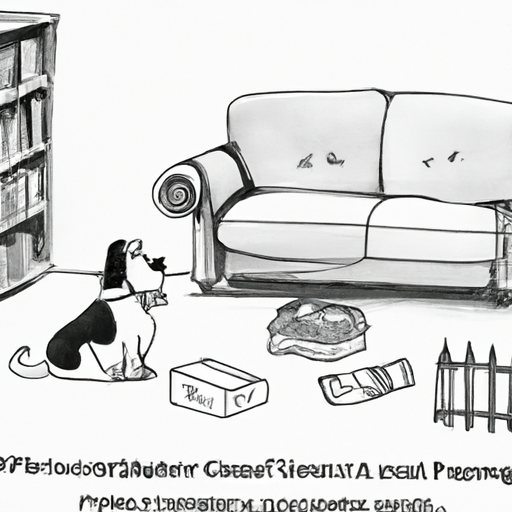1. Understanding the Dog’s Perspective
It’s crucial to understand why your dog may prefer the couch over their own bed. Just like you, they appreciate comfort. Dogs are creatures of habit, and once they find a cozy spot, they tend to stick with it.
Consider these factors:
- Comfort: Couches are typically more comfortable than the floor or even their own beds.
- Your Scent: Dogs are attracted to their owner’s scent, which is often strongest on the couch.
- Social Interaction: Dogs seek companionship and may want to be near you when you’re on the couch.
2. Providing Alternatives
Your first step should be providing an attractive alternative to the couch. This could be a comfortable new dog bed, or a designated blanket or mat. Make sure to choose a bed that fits your dog’s size and sleeping habits.
Here’s how to make the alternative appealing:
- Place the bed in a favorable location: Dogs like to be near their humans, so place the bed near where you usually sit.
- Add a piece of your clothing: To give the bed your scent, add a piece of your worn clothing.
- Give positive reinforcement: Reward your dog for using their bed to encourage this behavior.
3. Training Your Dog
Training your dog to stay off the couch will require consistency, patience, and positive reinforcement. Here are some steps to consider:
- Establish the rule: Make sure all family members agree to the “no couch” rule.
- Use a firm command: Start by saying “no” or “off” when your dog tries to jump on the couch.
- Reward good behavior: When your dog obeys, reward them with a treat or praise.
4. Using Deterrents
If training and alternatives don’t work, you might consider using deterrents. These could include furniture covers, special mats, or even aluminum foil.
| Deterrent | Description |
|---|---|
| Furniture covers | These protect your couch and can be uncomfortable for your dog. |
| Training Mats | Emit a mild electric pulse or noise to deter your dog. |
| Aluminum Foil | Dogs dislike the sound and feel of foil, making it a cheap deterrent. |
5. Seeking Professional Help
If you’ve tried the above steps and are still struggling, it might be time to seek help from a professional dog trainer or behaviorist. They can provide personalized advice and training methods to help keep your dog off the couch.
Frequently Asked Questions
1. How long will it take to train my dog to stay off the couch?
The length of time it takes will depend on your dog's personality and the consistency of the training. It could take a few weeks to several months.
2. What if my dog only gets on the couch when I’m not home?
You might consider using deterrents or confining your dog to a specific area when you're not home.
3. Can I allow my dog on the couch sometimes?
This can be confusing for your dog. It's generally better to be consistent with the rules.
Remember, patience and consistency are key when training your dog. With time and effort, you can help your dog understand and respect the boundaries you set.



